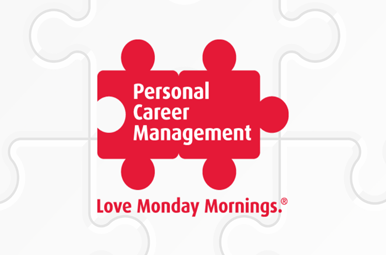What are the advantages of advertised jobs?
There are many advantages to advertised jobs. They tend to be easy to find, they offer a defined job role,…
Article by:Corinne Mills



There are many advantages to advertised jobs. They tend to be easy to find, they offer a defined job role, and the employer is usually clear about what they are looking for in their applicants.
The disadvantage is that their high visibility means lots of competition, and while job-seekers often spend most of their time applying for advertised jobs, in fact they account for only a small proportion of vacancies which are filled each year. Unadvertised jobs, filled through networking, direct approaches to companies etc account for many more successful job searches.
So where can you find the advertised jobs?
You can find these in a wide variety of places. For example:
- Internet recruitment websites
- Newspapers – local and national
- Specialist journals
- Databases held via Job Centre Plus
- High street recruitment agencies
- In-house corporate newsletters and vacancy bulletins
- Recruitment section of corporate websites
Tips on applying for advertised jobs
It’s safe to assume that there will be lots of competition for any advertised job. Outlined below are some strategies to help increase your chances of being shortlisted.
- Speed
The sooner you can get your application in the better. Do not be misled by a closing date. If there is a huge response to the advert, then the employer is unlikely to sift through every application. They will stop as soon as they receive approximately 10 good applications from people they want to interview. Other CVs won’t get a look in so you need to act quickly. - Relevance
The employer will have a tick box of criteria against which they will be assessing your CV or application. The easier you make it for them to tick the boxes, the greater the chance of you being shortlisted.Study the advert, any job description or person specification form that is available and make a note of exactly what they seem to be looking for.Structure your CV so that within 15 seconds of looking at it, the employer can see that you have the relevant skills required.It may be easier to have a front page heading such as “Skills and Experience” which lists practical examples of when you have demonstrated the abilities they are looking for. Wherever possible, use the terminology they use in the job details to cement the impression of you being a good fit. - Research
Do some additional research on the company, the sector, and the role and refer to this in your application or covering letter. This is usually overlooked by most candidates and by taking the trouble to do this, it will show your enthusiasm, diligence and professionalism. - Visual Presentation
Your CV needs to be impeccably presented, smart and professional. Even if the content is great, a poorly presented CV will land you on the reject pile. - Personal Contact
Wherever possible, try to make some contact with the person or team responsible for recruiting for this role (i.e. ideally the manager not the HR team). Find some reason to ring them up perhaps to ask about the job or check they received your CV. The fact that you took the trouble to do this shows how keen you are and this information often makes its way back to the recruiting Manager. However, never hassle or be difficult to deal with, even if the recruitment process seems to be inefficient. Negative feedback can find its way to the recruiting Manager too. - Keywords
Your CV or application may be sifted by a database, in which case initial short listing will be the result of a key word database search.Many of the keywords will be in the advert or person specification form. However, there may be additional ones used for specific skills, knowledge, job titles and sector experience. As you don’t know exactly what words they will use, make sure you use a combination of likely words at different points in your CV to help cover your options e.g. project manager, project leader.Ensure you use jargon appropriate to the role for the purposes of keyword search. It is likely to be a non-technical person conducting the initial short listing and they may not understand different terms than the ones they have been tasked to look for.
If you are looking for a new role then it is well worth checking in regularly with sources of advertised jobs. However, you may find that the unadvertised market, using networking, direct approaches to companies etc, may offer a greater chance of success.
Summary
- Act quickly to send over your CV
- Show off your additional research in your covering letter
- Highlight your relevant skills and experience
- Make your CV look good
- Include keywords in your CV content
- Make personal contact if possible
- Investigate the unadvertised market as well as the advertised
Personal Career Management offer a free introductory meeting to find out how career coaching can help you with your particular career issue.
Corinne Mills is Managing Director of the UK’s leading career management company Personal Career Management and author of the UK’s no. 1 bestselling CV book “You’re Hired – How to write a brilliant CV“.
You may also be interested in the following article; Tackling the unadvertised job market.
How do I find out more?
Call us on 0345 686 0745 or fill in our contact form and one of our team will be happy to contact you.
We offer a free, no-obligation consultation to discuss your situation and to find out more detail about how our programmes work.
Or Call Us on 0345 686 0745

Related Articles



